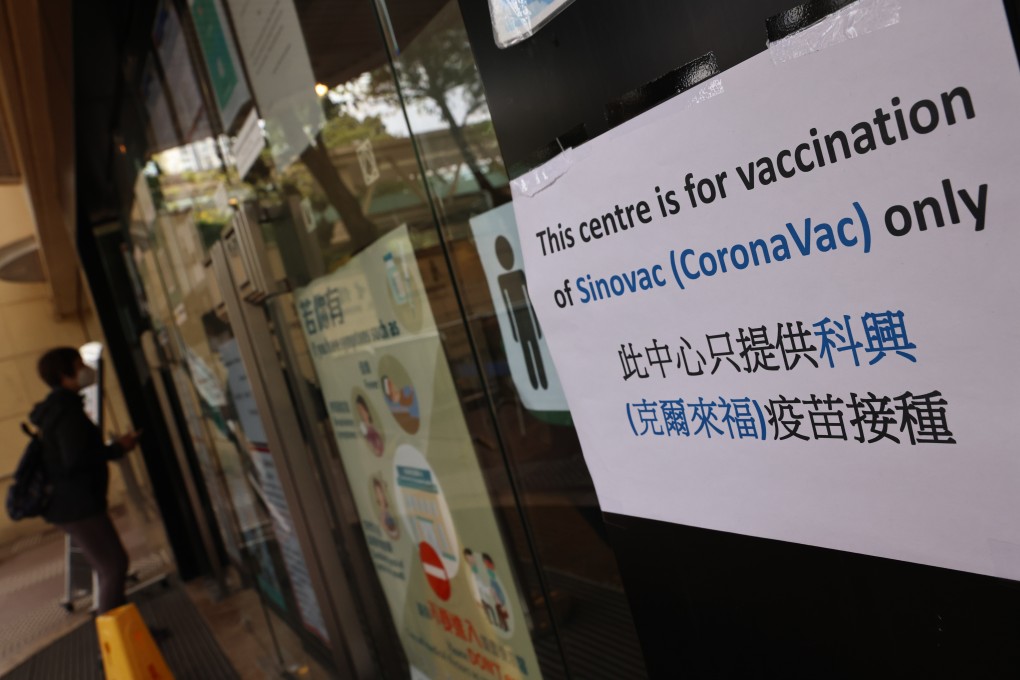Hong Kong coronavirus: herd immunity could take more than a year to reach, experts warn, after vaccinations drop 35 per cent
- Previous estimate had been 300 days, but public confidence hit by vaccine packaging defects and fears over side effects of jab
- City leader Carrie Lam says officials will soon announce fresh incentives for residents to get inoculated

Government pandemic adviser David Hui Shu-cheong hoped the resumption of bookings for the BioNTech vaccination on Saturday might lead to the public regaining confidence in the scheme, while another expert Lau Yu-lung said the government had to be more transparent, and should never compromise on free choice for vaccinations.
As of 10pm, slots for the German-made jabs on Tuesday – the earliest available – were fully booked or nearly all filled at 17 of 21 centres citywide, but other days this month were mostly available. There were still slots in the coming three weeks at all five of the community vaccination centres administering the Chinese-made Sinovac doses.
For the Chinese-made Sinovac, there were still slots available in the coming three weeks at four of the community centres. Only quotas in the 18 outpatient clinics under the Hospital Authority were mostly full.
About 3,200 people made online bookings to receive their first and second doses of the Sinovac vaccine, while about 42,300 people booked the BioNTech jab, compared with 11,000 people on 23 March when the government suspended reservations. It was unclear whether the surge was down to rebooking of timeslots by people who were assigned a session after the suspension was put in place.
Bookings resumed as the city recorded just two new Covid-19 infections – one imported and one locally traceable – on Saturday, the lowest in about a week. The infections took the city’s tally to 11,501, with 205 related deaths. Fewer than 10 people also tested preliminary-positive for the coronavirus.
